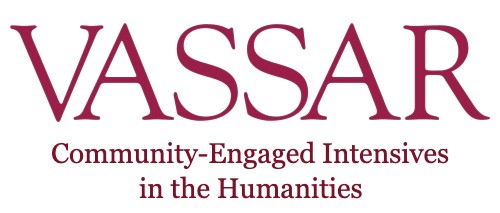COMMUNITY-BASED RESEARCH
with POUGHKEEPSIE CHILDREN’S CABINET, Summer 2021
Recipient: Prof. Erin McCloskey
Proposal:
I have been working with the Poughkeepsie Children’s Cabinet to develop a research project that will allow the students in my senior seminar an opportunity to conduct community-based research that assists the Cabinet in their work of using data to inform educational change. I am interested in exploring the possibility of offering an intensive, following this class, that would allow these students to continue this work – perhaps conducting interviews with community partners, teachers, students and parents or analyzing the data the Cabinet has collected. Students could be assigned to a certain working group in the Cabinet
This summer I will work closely with the Community Fellow who will be assigned to the Children’s Cabinet to learn about operations of the cabinet and potential points for collaboration. I will check in with the Fellow weekly, from June 7-Aug. 6. During this time I will also meet with the three main coordinators of the Cabinet: Robert Watson Jr. , Kylynn Grier, and James Watson. These meetings will allow me to learn about where they are in some of their research projects and ways that my students and I can connect.
Funding received for:
Stipend for a “Community Fellow” who worked with the Poughkeepsie Children’s Cabinet
Books
Reflections:
The opportunity to work with the Cabinet over the summer allowed me to integrate their organization into the curriculum of my class, EDUC 385: Senior Seminar, Fall 2021. This seminar was focused on community engaged scholarship. 4 students partnered with this organization to learn about their work for creating systemic change in the City of Poughkeepsie for youth. They worked on the Cabinet’s ‘cradle-to-career’ project and developed interview protocols, conducted interviews, and a literature review of college counseling programs.
Through this work, I was able to continue to learn about the work of the Cabinet. In an effort to share this work, I invited the Cabinet to an Education Department meeting. The Cabinet presented their work and invited the faculty to join them in thinking through research projects. We will invite them back again to discuss in greater detail.
- How did your ideas develop over the summer?
I was able to meet with Em Frazier, the community fellow, to learn about their work with this organization. They filled me in on the research project they were involved in- engaging youth in participatory action research. I was also able to meet with the co-founders of the Cabinet and hear more about the initiative beyond Em’s work. Through the grant, I was able to purchase five different books that addressed community engaged research. I spent time over the summer implementing ideas from the texts, the Cabinet’s initiatives, and Em’s experiences into the curriculum for my class to be taught in the fall.
- How did this summer exploratory grant help to further the goals of the initiative, namely:
- Encourage meaningful interactions among faculty, students, and community organizations-
- The support of the grant was instrumental in facilitating these interactions. I did not know too much about the Cabinet’s work and through the Office of Community Engaged Learning (OCEL), was introduced to the co-founders. I also did not know Em Frazier and this introduction also happened because of this grant and the OCEL office.
- Enable sustainable community partnerships. Did this partnership move us further in the direction of creating mutually beneficial and equitable partnerships?
- Yes, I believe it did. Once I learned of the work the Cabinet was doing, I was able to add an initiative they wanted to further into the curriculum of my class. My students got ‘real world’ experience by designing tools for data collection and the Cabinet was able to gather data about college counseling in the Poughkeepsie City School District.
- Bring faculty scholarship and teaching into conversation with community needs and interests
- Yes, this is ongoing. Inviting the Cabinet to an Ed Department Faculty meeting was the first step in beginning these conversations about research that may be of mutual benefit to both the organization and the faculty of the Education Department. I am personally looking forward to discussing how I might help them gather qualitative data to complement the quantitative data they have begun to collect. As discussed earlier, the Cabinet’s work has already made its way into the curriculum of my class.
- Develop thematic clusters of community-engaged learning opportunities that provide a framework for long-lasting and equitable collaborations with community partners–
- By involving the Education Department, I’m hopeful that we can continue to incorporate the work of the Cabinet into our classes.
- Leverage community assets and expertise:
- We have been able to invite community partners into the class to share their expertise.
- Empower students to lead impactful lives:
- The students in my class have shared with me that they very much appreciated participating in research in the ‘real world’. They have learned about the work of non-profit organizations and the many challenges they face.
Click on the next page for more intensives
